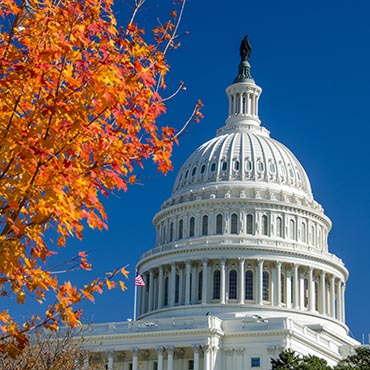FITARA supporters ‘optimistic’ about lame duck

Which party wins control of the Senate might be less important to passage of key IT acquisition legislation than how much time is left on the legislative clock.

While politicians spent the fall hammering each other on the campaign trail, a relative handful of key policy staffers remained behind on Capitol Hill, hammering out the details of a federal IT reform package -- the perennial Federal Information Technology Acquisition Reform Act. FITARA is expected to be tacked onto the fiscal 2015 defense authorization bill, the same legislative game plan as last year. But this year, there appears to be more optimism that a version will make it across the finish line in the lame-duck session of Congress.
Rich Beutel, a senior staff member on the House Oversight and Government Reform Committee, says the stars could be aligning this year. He told a gathering at the ACT-IAC Executive Leadership Conference last month that he was "optimistic that something is going to happen." After two years of work on FITARA, backers are "at a point where we have a consensus-based bicameral bill," and now House staffers and their counterparts on the Senate Homeland Security and Governmental Affairs Committee are hashing out the details with the Armed Services committees.
That final package is very likely something close to the version of FITARA that was reported out of the Senate panel. That bill is leaner than the version that passed the House in June as part of the defense measure. The House bill looked to codify all sorts of IT management initiatives, such as transition to cloud computing and data center optimization, while improving workforce development for acquisition specialists and project managers, developing flexible financing for multiyear IT acquisitions and more.
The Senate version retains the core provision of giving top agency CIOs more authority over IT acquisition and hiring of top IT officials at component agencies. It does not mandate, as have past incarnations of FITARA, that CIOs be confirmed by the Senate or that only one individual hold the CIO title at a given agency.
Beutel appears to be happy with what remains in the bill. He told the ACT-IAC audience that FITARA "gives CIOs broad plenary authority over budget and hiring and does things we hope will fulfill the promise of Clinger-Cohen," the 1996 IT legislation that established the agency CIO position. That law also was grafted onto a defense authorization package.
The question remains as to whether Sen. Carl Levin (D-Mich.) will go to bat for FITARA as part of his final defense authorization bill as chairman of the Senate Armed Services Committee. Several sources told FCW that the retiring Levin has had concerns about whether the CIO authorities contained in FITARA were too binding for the purposes of the Defense Department. The Senate, for the second year running, is looking to change the structure of military IT acquisition by combining the duties of the deputy chief management officer and the CIO in one role.
"FITARA is not going to go as a standalone piece of legislation," said Mike Hettinger, a former senior Hill staffer who has managed policy for several tech trade associations, so any concerns voiced by Levin are going to have to be accommodated. But, Hettinger pointed out, if there is a total carve-out for the military, "what business does it have riding on" the defense bill?
A current House staffer close to the negotiations said that if FITARA is adopted, "you would see a framework that recognizes that 'one size fits all' isn't appropriate. The language would be carefully crafted to make sure it respected the equities of the DOD."
The administration has been mostly quiet on FITARA, although former CIO Steve VanRoekel has expressed reservations about the bill at various points. At the ACT-IAC conference, General Services Administration head Dan Tangherlini said his agency consolidated CIO authority by administrative order to cut down on overlapping authorities and unnecessary bureaucracy. "Maybe FITARA helps. We just did it in GSA by saying our CIO is our CIO and all the other people who are working on IT have to report to that CIO," Tangherlini said.
But Tangherlini cautioned about drawing a line between business applications like email and other commodity IT and mission-specific applications.
"I don't know if I want CIOs to be the authority on mission-critical applications," Tangherlini said. "That really belongs to the program. [The CIO] should be an enabler. You have to be really careful you don't hand all that responsibility over to the CIO, who really isn't the program expert."
Whatever happens with FITARA, it is likely going to be a blip compared to the overall back-and-forth on passing the defense bill. Congress has been able to move an authorization by Dec. 31 for the last 51 years. Levin and his House counterpart, Rep. Howard McKeon (R-Calif.), are both retiring, so it's extremely unlikely that passage of their final bill will get hung up on an IT acquisitions measure.
"There are plenty of other major national security issues coming to the forefront," said Erica McCann, a federal procurement specialist at the Information Technology Alliance for Public Sector, an industry group that backed some of the more fine-grained policy measures in the House bill, including the cloud transition section and a measure on strengthening the IT workforce. She said she is hopeful that some of the policy initiatives in the House bill might be included in the final version -- assuming FITARA even makes it into the defense bill.



